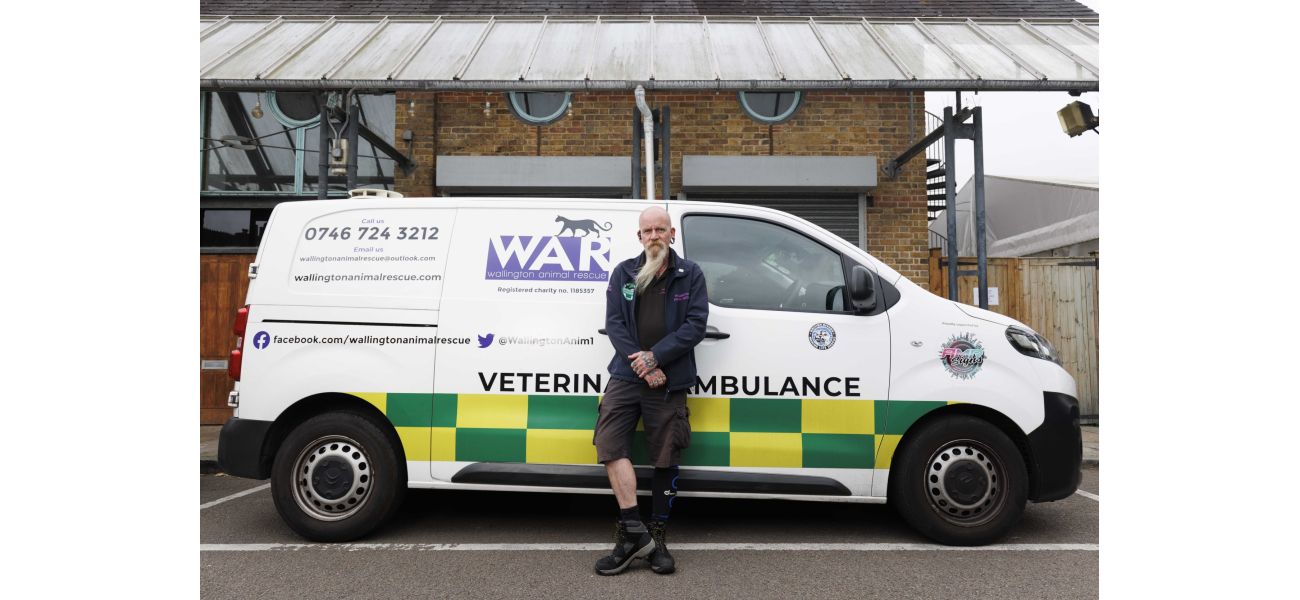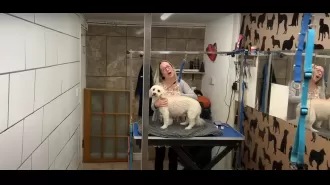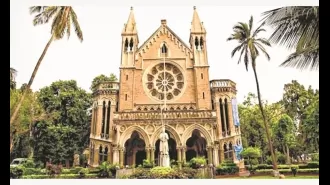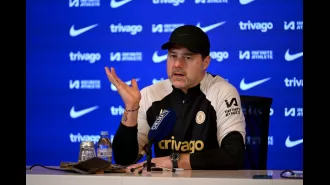Rescue charity had to get rid of animal ambulances due to not meeting Ulez standards.
Small charity can only afford to replace one of two vehicles.
August 29th 2024.

Neil Blackwell, the owner of Wallington Animal Rescue, a charity based in Sutton that specializes in emergency animal rescue, was recently faced with a difficult and costly decision. Due to the expansion of London's Ultra Low Emission Zone (ULEZ) last year, his organization was forced to give up their non-compliant ambulances. This left them with a hefty bill of £11,000 and only one remaining vehicle.
The ULEZ expansion required all vehicles in London to meet strict emissions standards, which meant that many motorists had to get rid of their non-compliant vehicles. To help with the cost, the government offered a scrappage fee of up to £7,000 for each van. However, for small charities like Wallington Animal Rescue, this was still not enough to cover the cost of replacing both of their ambulances.
Neil Blackwell explained, "We are a very small independent rescue charity, and we could only afford to replace one out of two vehicles. Having to dispose of one was a really heartbreaking decision, but we simply could not afford it, as replacing just one cost us £11,000."
He went on to say that the charity had spent months outfitting the vans to function as animal ambulances, even going as far as adapting them to hold and treat seals and porpoises. With only one vehicle now available, Mr. Blackwell is working twice as hard to cover the Surbiton area in south west London.
"We are a volunteer operation, and we don't even take a wage from this," he shared. "But we are one of the only wildlife rescues running here, and the amount of call outs we have has gone up astronomically in the last few years. I gave up my job as a paramedic five years ago to pursue this, and we are working so hard to try and keep up with the demand with just one ambulance."
Applying for the scrappage scheme was a nightmare for Mr. Blackwell, as he was rejected twice before finally being approved. This was due to the requirement of providing an HMRC tax number, which is typically only held by businesses. This was a frustrating and stressful process for Mr. Blackwell, as he explained, "We are a charity, so we don't have the same tax information as a business would. It was incredibly stressful having to explain this to the authorities."
Other business owners and motorists also faced difficulties with the scrappage scheme. Danny Madden, owner of Madden Builders, had to scrap his old van and spend £24,000 on a ULEZ compliant truck. However, it took four months for his application to be approved, when it was meant to take only a few days to receive the funds. "On the form online we said we were a charity from a drop-down menu and provided everything they asked for," he said. "But we would be told the application was declined - twice. It was only after spending hours on the phone with them they told us we needed more tax information, which you only have if you are running a business."
Even those who were able to receive the scrappage fee felt they were shortchanged. David Bond, who owns an engineering shop, applied for the scheme early last summer and was offered £5,000 for his van. However, the amount was later increased to £7,000 for other applicants, leaving Mr. Bond feeling like he missed out on £2,000. "That money could have meant a lot to me, especially as £5,000 doesn't even touch the side of getting a new van anyway," he said.
Some motorists chose not to apply for the scheme at all, fearing that the specific vehicles needed would be gone by the time they received the money. Danny Madden, for example, spent £24,000 on a second-hand ULEZ compliant vehicle, which was significantly more than the £7,000 offered by the scrappage scheme. "We bought our old van for £34,000 in 2014 brand new on the assumption it would last us for years to come," he shared. "But we got a really bad deal on it when we traded it in because the dealers knew we had no choice but to get rid of it. Then when I went to buy the new truck, the yard owners were honest and said their prices were only going to go up because of the demand for them."
TfL's Director of Strategy, Christina Calderato, defended the scrappage scheme, stating that it was open to all Londoners, small businesses, sole traders, and charities with non-compliant vehicles. "To support charities, the Mayor expanded the scheme last July to allow them to scrap up to three vehicles and extended the grace period for those retrofitting their vehicles," she said. "The evidence requirements ensure the scheme is not subject to fraud, and taxpayers' money is used in the best way. We encourage anyone who still needs support to submit their application before September 8th."
The ULEZ expansion required all vehicles in London to meet strict emissions standards, which meant that many motorists had to get rid of their non-compliant vehicles. To help with the cost, the government offered a scrappage fee of up to £7,000 for each van. However, for small charities like Wallington Animal Rescue, this was still not enough to cover the cost of replacing both of their ambulances.
Neil Blackwell explained, "We are a very small independent rescue charity, and we could only afford to replace one out of two vehicles. Having to dispose of one was a really heartbreaking decision, but we simply could not afford it, as replacing just one cost us £11,000."
He went on to say that the charity had spent months outfitting the vans to function as animal ambulances, even going as far as adapting them to hold and treat seals and porpoises. With only one vehicle now available, Mr. Blackwell is working twice as hard to cover the Surbiton area in south west London.
"We are a volunteer operation, and we don't even take a wage from this," he shared. "But we are one of the only wildlife rescues running here, and the amount of call outs we have has gone up astronomically in the last few years. I gave up my job as a paramedic five years ago to pursue this, and we are working so hard to try and keep up with the demand with just one ambulance."
Applying for the scrappage scheme was a nightmare for Mr. Blackwell, as he was rejected twice before finally being approved. This was due to the requirement of providing an HMRC tax number, which is typically only held by businesses. This was a frustrating and stressful process for Mr. Blackwell, as he explained, "We are a charity, so we don't have the same tax information as a business would. It was incredibly stressful having to explain this to the authorities."
Other business owners and motorists also faced difficulties with the scrappage scheme. Danny Madden, owner of Madden Builders, had to scrap his old van and spend £24,000 on a ULEZ compliant truck. However, it took four months for his application to be approved, when it was meant to take only a few days to receive the funds. "On the form online we said we were a charity from a drop-down menu and provided everything they asked for," he said. "But we would be told the application was declined - twice. It was only after spending hours on the phone with them they told us we needed more tax information, which you only have if you are running a business."
Even those who were able to receive the scrappage fee felt they were shortchanged. David Bond, who owns an engineering shop, applied for the scheme early last summer and was offered £5,000 for his van. However, the amount was later increased to £7,000 for other applicants, leaving Mr. Bond feeling like he missed out on £2,000. "That money could have meant a lot to me, especially as £5,000 doesn't even touch the side of getting a new van anyway," he said.
Some motorists chose not to apply for the scheme at all, fearing that the specific vehicles needed would be gone by the time they received the money. Danny Madden, for example, spent £24,000 on a second-hand ULEZ compliant vehicle, which was significantly more than the £7,000 offered by the scrappage scheme. "We bought our old van for £34,000 in 2014 brand new on the assumption it would last us for years to come," he shared. "But we got a really bad deal on it when we traded it in because the dealers knew we had no choice but to get rid of it. Then when I went to buy the new truck, the yard owners were honest and said their prices were only going to go up because of the demand for them."
TfL's Director of Strategy, Christina Calderato, defended the scrappage scheme, stating that it was open to all Londoners, small businesses, sole traders, and charities with non-compliant vehicles. "To support charities, the Mayor expanded the scheme last July to allow them to scrap up to three vehicles and extended the grace period for those retrofitting their vehicles," she said. "The evidence requirements ensure the scheme is not subject to fraud, and taxpayers' money is used in the best way. We encourage anyone who still needs support to submit their application before September 8th."
[This article has been trending online recently and has been generated with AI. Your feed is customized.]
[Generative AI is experimental.]
0
0
Submit Comment





